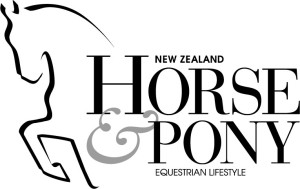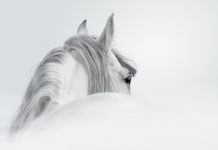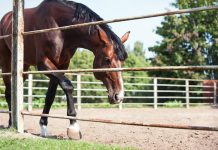Q: I have been reading a bit in the news about how freely consuming water during exercise can be harmful – even fatal – to humans. According to the article, the problem was a dangerously low level of sodium in the blood, and apparently around 30% of people exercising were found to be overhydrated. Now I am wondering if it is the same with horses – should I restrict how much water I let my horse drink during and after exercise?
Julie R, Auckland
Vet Dave Van Zwanenberg replies:
Julie, the short answer is no, you should not restrict the amount of water your horse is drinking after exercise. The long answer is as follows:
The research in human medicine is from endurance sports such as ultra marathon and iron man. The previously well-held advice that you should actively ingest fluids as you progress through these events is being challenged, as is the notion that mild dehydration affects performance.
What the research has found is that people who are drinking fluids during these events are often ending up heavier at the end of the event that the start; this means that there has been a net loading of fluids during the event combined with electrolyte loss through sweat – leading to the possibility of hyponatraemia (low blood sodium). Note this is actively making a decision to drink even though the athlete is not thirsty.
With regards to mild dehydration, in blinded study participants have producing similar athletic performances between normal hydration and 3% dehydration, suggesting that in this range athletic performance is maintained – rather than lost as the sports drink companies would like you to believe.
From this research there are two things that the average horse owner can take comfort in – the first is that unless you are in an endurance-type event where there is prolonged sweating, then the duration of sweating that your horse encounters is unlikely to make enough of an impact on his electrolyte levels to be an issue, and certainly not one that the horse can’t self-correct if allowed access to food and water after exercise.
The second is that unless your horse has been trained to drink on command, he will drink to thirst – as is the current recommendation for ultra competitors, and thus will not fluid-load. If you are force-feeding your horse water, then this is a different matter. The research from human medicine is probably only of relevance to horses competing in the longer endurance distances. Competitors in these events are usually well versed in keeping their horses correctly hydrated and metabolically correct, as failure to do so will result in them being vetted out for metabolic reasons and issued a stand-down period under FEI rules.






